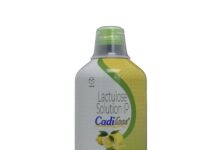Dr Kavitha Kovi, Senior Consultant Obstetrics & Gynaecology, Aster Women & Children Hospital, Whitefield
Pregnancy is an unforgettable experience for couples since it symbolizes the beginning of their journey into parenthood. At this pivotal stage, the choice of how to introduce the baby to the world becomes a momentous and meaningful decision. When making a decision, couples consider whether to choose a medicated or unmedicated birth, a natural birth, or a caesarean section, as these are the key factors that influence their choice. Among all the birthing options available, water birth is gaining immense popularity in recent years. It involves labouring and giving birth in a water birth pool, which provides pain relief through hydrotherapy.
Immersion in warm water eases contractions and relaxes muscles, promoting overall relaxation and reducing anxiety. The experience offers substantial pain relief, and the comfortable environment encourages the production of hormones that aid in pain reduction. Water birth benefits both the mother and the baby. It acts as natural pain relief, provides a sense of weightlessness, and creates a private and safe space. Studies suggest that it can also shorten labour duration.
With lower adrenaline levels, the body can release oxytocin and endorphins, which are known as the “feel-good” hormones. This hormonal response helps alleviate pain, promotes a sense of calmness, and allows the mother to concentrate on her baby.
Benefits of Waterbirth
Water birth advocates believe it offers numerous benefits for both the mother and baby during labour and delivery.
- Pain Relief and Relaxation – One of the primary benefits of water birth is the soothing effect it has on the mother. The warm water provides natural pain relief during labour, promoting relaxation and reducing anxiety. The buoyancy of the water helps to alleviate the pressure on the mother’s joints and muscles, allowing her to assume comfortable positions that facilitate labour progress.
- Improved Blood Circulation – Water birth encourages optimal blood circulation, which is beneficial for both the mother and baby. The warm water causes blood vessels to dilate, enhancing blood flow to the uterine muscles, thus promoting efficient contractions.
- Natural Pain Management without Medication- Many women choose water birth as an alternative to pharmacological pain relief options. Water immersion triggers the release of endorphins, the body’s natural pain relievers, promoting a more relaxed and peaceful state during labour. The absence of medication reduces the risk of potential side effects for both the mother and baby.
- Smooth Transition for the Baby– Water birth offers a gentle and seamless transition from the womb to the outside world for the baby. The warm water of the birthing pool mimics the amniotic fluid, providing a familiar and comfortable environment for the baby. This can help reduce stress and promote a smoother transition to breathing independently.
- Enhanced Bonding and Empowerment- The intimacy of water birth promotes a deeper connection between the mother and the baby. The nurturing and serene environment facilitates a sense of empowerment and can positively influence the bonding process between the newborn and parents.
Choosing water birth increases the likelihood of successful natural deliveries for women. The comforting warmth of the water aids in the relaxation of the pelvic floor and promotes softening of the perineum, thus decreasing the likelihood of vaginal tearing or bleeding. Additionally, water birth is considered a painless method of childbirth and may even lower the chances of foetal complications.
However, it is essential to seek medical guidance and follow the necessary precautions. For the well-being of both the mother and baby, it is crucial to have experienced and trained midwives present during the water birth procedure. Their expertise is necessary to prevent the baby from swallowing water and to ensure the appropriate timing for the baby’s emergence from the water.
Water birth is typically recommended for women between the ages of 18 and 35 with low-risk pregnancies. However, it may not be suitable for women who have had multiple C-sections or are experiencing preterm labour. Additionally, if the mother has a skin or blood infection, high fever, vaginal bleeding, or multiple pregnancies, water birth is not advised. Regulating the baby’s body temperature can be challenging during a water birth.
The experience of water birth offers several benefits, including the warmth of the water, the freedom to move around, dim lighting, and privacy, which contribute to a more comfortable and wholesome birthing experience for women. Nonetheless, it is crucial for women considering water birth to consult with their healthcare provider to determine its feasibility in their specific case.





















